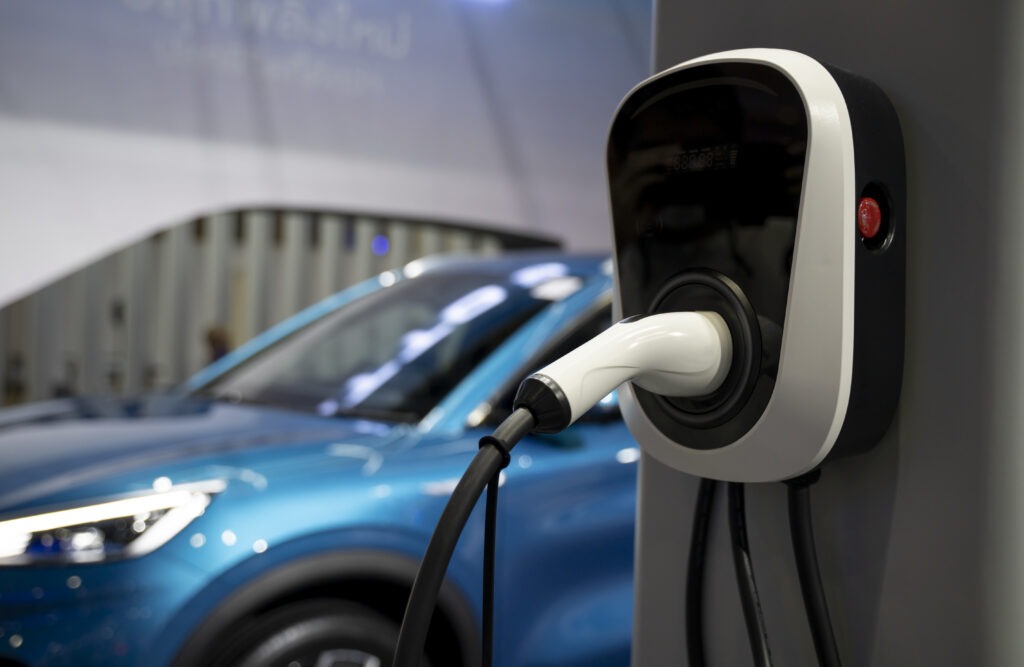China boosts global EV market as growth accelerates in Russia
22 July 2024

The global electric vehicle (EV) market recorded a strong performance in May. While China drove growth, the Russian market recorded rapid acceleration. José Pontes, data director at EV Volumes, explores the figures with Autovista24 journalist Tom Hooker.
A total of 1.3 million EVs were registered globally in May, an improvement of 23% year-on-year. The growth was driven by plug-in hybrids (PHEVs) which jumped 37% compared to the same period last year. Meanwhile, battery-electric vehicle (BEV) deliveries increased by 17%.
Plug-ins took a 20% share of the global new-car market in the month, with BEVs alone accounting for 13% of registrations. All-electric vehicles represented 66% of the plug-in segment in May, while its year-to-date share sat at 64%.
Market breakdown
Breaking down the global EV market, China accounted for over 60% of plug-in deliveries in the first five months of 2024. When omitting the market from worldwide figures, growth appears steadier.
In this scenario, plug-in volumes increased by 6% in May, while BEVs were up by 7%. In the year-to-date, EVs jumped 12% without the Chinese market, while all-electric deliveries improved by 10%.
Elsewhere, EV registrations in Europe were down 10% in the month. The region felt the effect of the end of subsidies in several markets. On the other hand, the North American market, combining US and Canadian deliveries, saw plug-in volumes surge 18% in May.
However, the biggest growth in the month came from outside the Chinese, European and North American markets. Removing these three regions from worldwide EV registrations results reveals a growth of 42% in May. Deliveries in Brazil increased by 266% year-on-year, followed by Mexico (up 137%), Singapore (up 136%), Malaysia (up 106%) and Chile (up 102%).
Yet the Russian EV market recorded the largest amount of growth, up 549% in the month. The country has seen increasing imports from China after legacy OEMs withdrew from the region. Compared to the same period 12 months ago, volumes have jumped 86% in the first five months of the year.
With the rapid electrification of China’s automotive market, Russia is quickly becoming electrified with increasing supply from China.
Tesla on top
The Tesla Model Y was the best-selling EV worldwide in May, reaching 89,120 registrations. The crossover accounted for 6.7% of global plug-in deliveries during the month.
Two BYD models completed the top three. The Song posted 63,371 deliveries in second, while the Qin Plus took third thanks to 49,294 units. Then came the Tesla Model 3 with 45,051 registrations.
The following four spots were filled by BYD, as the brand benefitted from price cuts. This means the carmaker placed six representatives in the top eight positions. The Seagull, also known as the Dolphin Mini, finished fifth with 36,323 units.
Then came the Yuan Plus, otherwise known as the Atto 3 secured sixth with 32,806 units. The Destroyer 05 came seventh (25,140 units) and the Han came eighth (18,048 units).
Behind, GAC’s Aion Y took ninth with 17,506 deliveries, a year-best result. The Aito M9 rounded out the top 10. It posted a second record month in a row as it reached 16,462 registrations.
Legacy OEMs lagging
In 12th, the Volkswagen (VW) ID.4 was one of only two models from legacy OEMs in the global EV best-sellers chart. It recorded 16,180 deliveries in May.
Meanwhile, the Zeekr 001 jumped into 15th with 13,671 registrations, helped by a recent refresh. Another Chinese brand, Li Auto, saw its L6 midsize SUV join the top 20 in 16th (12,965 units) after just two months on the market.
As the second legacy OEM model in the table, the VW ID.3 recorded a year-best result in 19th with 12,429 deliveries. The returning BYD Seal followed in 20th and posted 11,378 registrations thanks to increased volumes in export markets. This meant the manufacturer featured a total of nine models in the best-sellers table.
Outside the top 20, the Volvo EX30 posted a best-ever result with 10,272 deliveries in just its fifth month on the market. Its demand has stabilised in Europe but benefited from entering new regions such as Mexico, Australia and Brazil.
The Denza D9 also recorded a positive performance, reaching a year-best 10,158 registrations. Meanwhile, the Hyundai Ioniq 5 (9,399 units) achieved its best result since August 2023. The Nio ES6 ended the month with 8,125 deliveries, also recording its best performance since August last year. Finally, the Xiaomi SU7 posted 8,646 registrations in its second month on the table.
Qin Plus under pressure
From January to May, the Tesla Model Y was the world’s most popular plug-in model, recording 420,296 registrations. The crossover holds a comfortable lead over the BYD Song in second (265,739 units) and the Qin Plus in third (182,628 units).
After the first five months of the year, the Tesla Model 3 sat in fourth with 175,665 deliveries. However, the sedan is likely to overtake the BYD Qin Plus in June.
The BYD Destroyer 05 (88,646 units) surpassed its sibling, the BYD Dolphin (83,371 units) to take eighth. The sedan was less than 400 units behind the Aito M7 in seventh and can be expected to move up again.
The VW ID.4 moved up a spot to 12th (63,121 units) after a strong month. Also gaining a position was the Wuling Bingo in 13th (60,313 units), while the Aion Y jumped three places to 14th (59,199 units).
The Aito M9 entered the year-to-date table for the first time, taking 20th (44,417 units). It replaced its full-size SUV segment rival, the Li Auto L9. Narrowly missing out on the top 20 was the Audi Q4 e-Tron, which reached 42,637 registrations.
BYD brilliance
BYD was the best-selling EV brand in May, with 314,760 deliveries. This was the carmaker’s second-highest monthly total, behind only December 2023. Sales are forecast to continue rising steadily throughout the year, further benefitting from price cuts.
The manufacturer’s BEV registrations were up by 22% in May compared to 12 months ago, while PHEV volumes surged 54% year-on-year. This was the third successive record month for BYD’s plug-in hybrids, reaching 172,000 deliveries. The brand's PHEVs were helped by lower prices than their internal-combustion engine competitors.
Tesla took second in May, recording 140,683 registrations. This was up on the same month last year, partially thanks to growing Cybertruck volumes. BMW came third with 45,615 deliveries.
Meanwhile, VW enjoyed its best performance of the year so far, finishing in fifth with 38,210 registrations. This was driven by good results from the ID.4 and ID.3. Another carmaker achieving a year-best result was Li Auto in sixth (37,017 units). It benefitted from the launch of the L6.
In the second half of the table, Kia claimed 12th with its best performance in 10 months, reaching 24,996 deliveries. With the upcoming EV5 and EV3 models, the marque is expected to continue increasing volumes throughout 2024.
Meanwhile, Nio scored its best-ever result in 15th, recording 20,710 registrations. The strong performance of the ES6 SUV and ET5 sedan helped to boost the brand’s overall figures.
Leapmotor joined the table in 20th (18,218 units), thanks to a year-best total. This meant that there were 11 Chinese brands in the top 20, while Ford, Peugeot and Jeep were absent.
VW in top five
Between January and May, BYD was the world’s most popular EV brand, posting just under 1.2 million deliveries. The marque almost doubled the volume of Tesla in second (625,596 units). The top two brands accounted for 32% of all EV deliveries, with BYD taking a 21% share alone.
The US carmaker had around three times the registrations as BMW (212,254 units) in third. Wuling stayed in fourth (179,667 units), while VW benefitted from a strong May to jump into fifth (157,157 units).
Also moving up the table was Li Auto, which overtook Mercedes-Benz for sixth thanks to 153,415 registrations. The brand benefitted from volumes in Russia and could see volumes increase when it lands in the Middle East. Meanwhile, its rival Aito surpassed Volvo to take ninth (144,688 units).
Kia jumped two positions into 13th (106,648 units), while Zeekr entered the top 20 in 18th (69,951 units). This makes Geely the only OEM with more than three marques in the year-to-date chart, with Volvo and Zeekr both appearing alongside the namesake brand.
Meanwhile, Ford (68,805 units) and Jeep (67,990 units) were relegated to 19th and 20th respectively. Both manufacturers could come under pressure from Leapmotor (66,764 units) and Nio (66,236 units).
BYD gains share
With brands grouped under OEMs, BYD further extended its lead, reaching a 22.1% EV market share. This was an increase of 1.3 percentage points (pp) from April and a more marginal year-on-year improvement of 0.2pp.
Second-place Tesla saw its share drop from 14.8% during the same period in 2023 to 11%. This was a drop of 0.2pp compared to the previous month.
Geely-Volvo came third, taking a 7.9% share in May, up 0.1pp on April. This marked significant growth for the OEM compared to its 6.2% share during the same period of 2023.
VW Group remained stable in fourth, accounting for 6.3% of all plug-in deliveries. However, its share was 1pp lower year-on-year. SAIC rounded out the top five, thanks to a 5.4% share, dropping 0.2pp on the previous month. Yet, the group suffered less of a year-on-year decline than VW Group, also down 0.2pp.
Meanwhile, Stellantis fell to a 3.9% share in May, a significant distance away from its 4.8% hold of the EV market recorded in May last year. The group needs its affordable EVs, such as the Citroen e-C3, to land soon.
Changan (3.9% share) and BMW (3.9% share) both overtook the OEM during the month, despite less than 600 units separating the three groups. The Hyundai Motor Group was not far behind in ninth (3.5% share).
Tesla slipping
Looking at just BEV deliveries, Tesla remained the best seller with a 17.2% market share. However, this was a 4pp drop on the same period last year. The carmaker is still ahead of BYD in second (16% share, down 0.2pp). If this trend continues, it could lose its lead in the fourth quarter.
Geely-Volvo continued its rise in third (7.5% share, up 0.3pp), thanks to strong performances across its lineup. The group distanced itself from fourth-place SAIC (7% share, down 0.1pp).
Fifth went to VW Group (6.9% share, up 0.1pp) as it closed in on the battle for third. The OEM is not facing any pressure from behind, as BMW Group took a 4.3% share, up 0.2pp from April.



